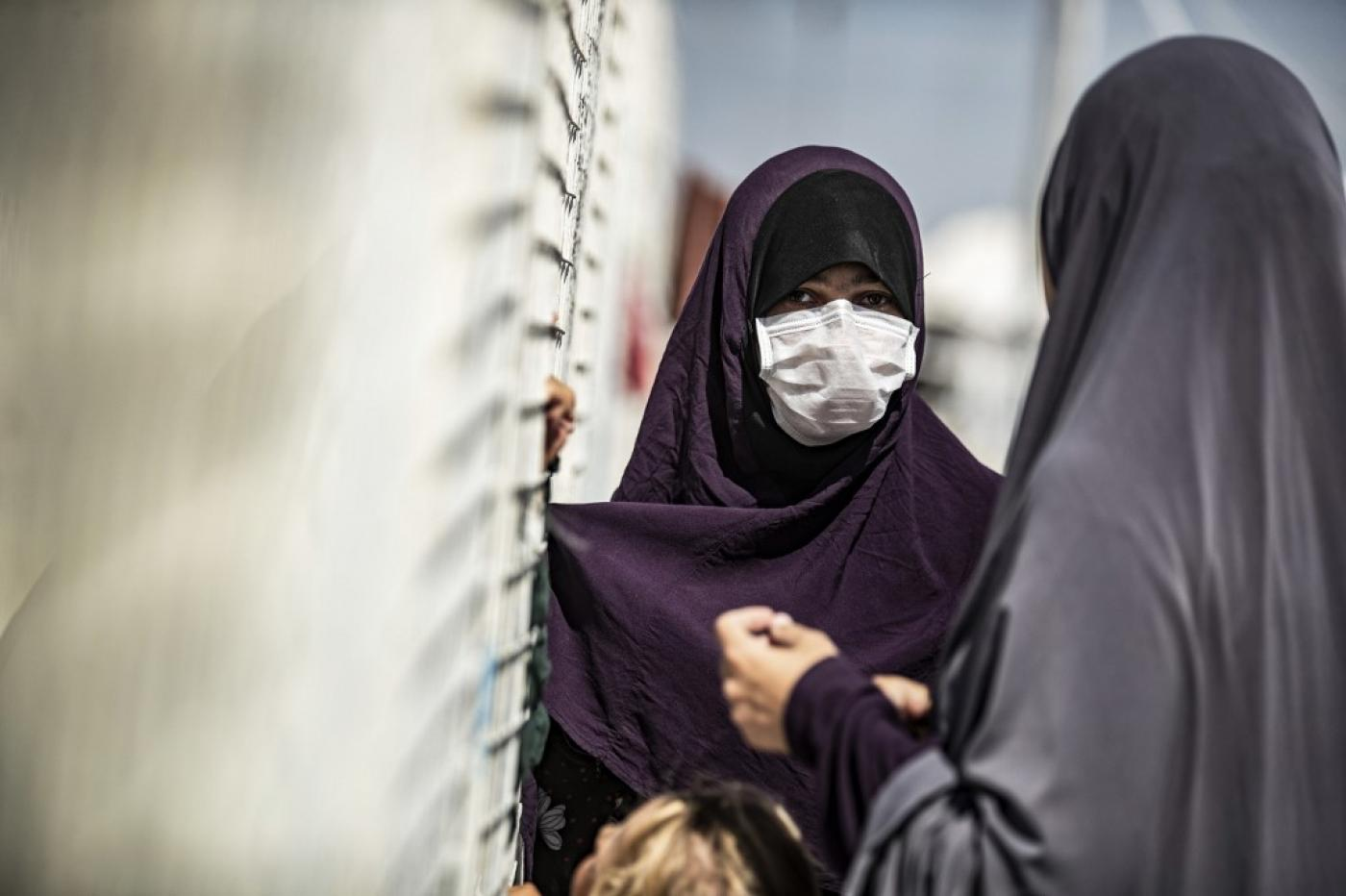
Top official says other countries must take responsibility for IS-linked suspects and families and tells them ‘give us a call’
The United States is ready to repatriate foreign nationals being held by Kurdish forces in camps and prisons in northeastern Syria, a senior State Department official said on Tuesday.
Nathan Sales, coordinator for counterterrorism within the State Department, said that repatriating thousands of suspected Islamic State (IS)-linked militants and their families to their countries of origin was the only way forward.
He said the US was “leading by example” and had already assisted several countries to repatriate their citizens from the region. He went on to criticise western countries, which have mostly rejected calls to repatriate their own nationals.
“Frankly we need to see more countries step up and that includes some of the US’s closest traditional allies,” Sales told the Global Security Forum, an event organised by the Soufan Center security think-tank.
“The US has assisted a number of countries around the world with repatriating their citizens and that is a standing offer. We are ready to assist any country that wants to move forward. Give us a call and we’ll find a way to make it work.”
Sales said he could not reveal which countries the US had helped for operational reasons, but singled out Italy for praise. In September, Italy repatriated a woman and her four children who had been held in the al-Hol camp in Syria. The woman was subsequently arrested and charged.
Sales said: “We commend our Italian allies for their leadership in Europe.”
Sales’ remarks suggest that the US is growing increasingly impatient with the failure of countries including the UK, Canada, Germany, France, Belgium and Australia to take responsibility for their own citizens.
His comments come after the US’s top soldier in the Middle East said in August that the US military was ready to repatriate detainees anywhere in the world.
“I’m happy to provide the resources to move them when we are directed to do that, and I can move them anywhere in the world very quickly and in a safe and transparent manner,” said US Central Command chief General Kenneth F McKenzie.
More than 65,000 people, mostly from Syria and Iraq, are currently being held in the main al-Hol camp for displaced people and families of suspected IS fighters and the smaller al-Roj camp, which are administered by the Kurdish Autonomous Administration of North and East Syria, also known as Rojava.
Roughly 3,000 women and 7,000 children in the camps are foreign nationals, while around 2,000 foreign men are detained in prisons among suspected IS fighters, according to Kurdish officials.
The governments of several western countries are facing legal action brought by the families of some of those being held in the camps, with the European Court of Human Rights currently considering a case brought by the parents of a French woman being held with her young children.
Family support groups and campaigners say that the detainees are being held in conditions that violate their human rights.
Last month, family support groups in several countries announced the creation of a network, Families for Repatriation International, to put pressure on governments to take action.
“Refusal to repatriate their own citizens cannot be the solution for any government who prides itself in defending human rights,” the network said in a statement.
